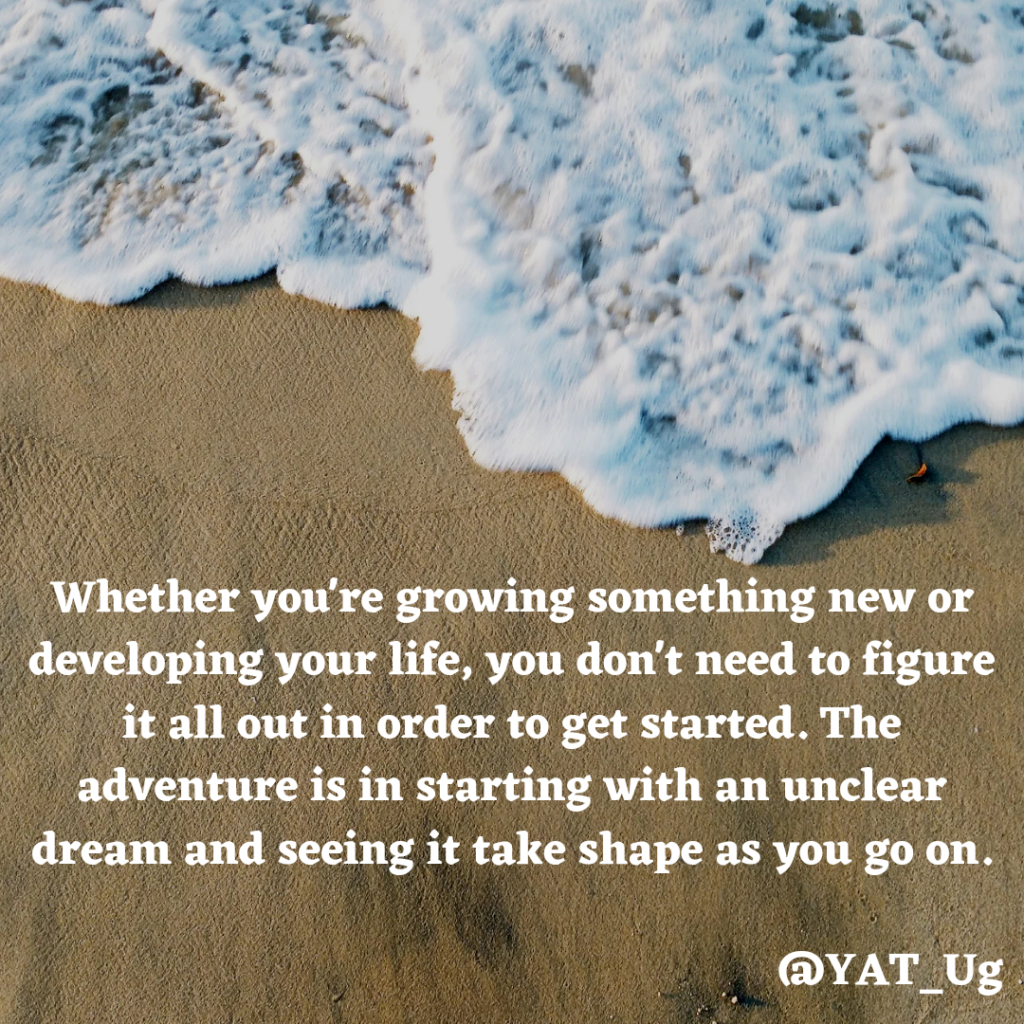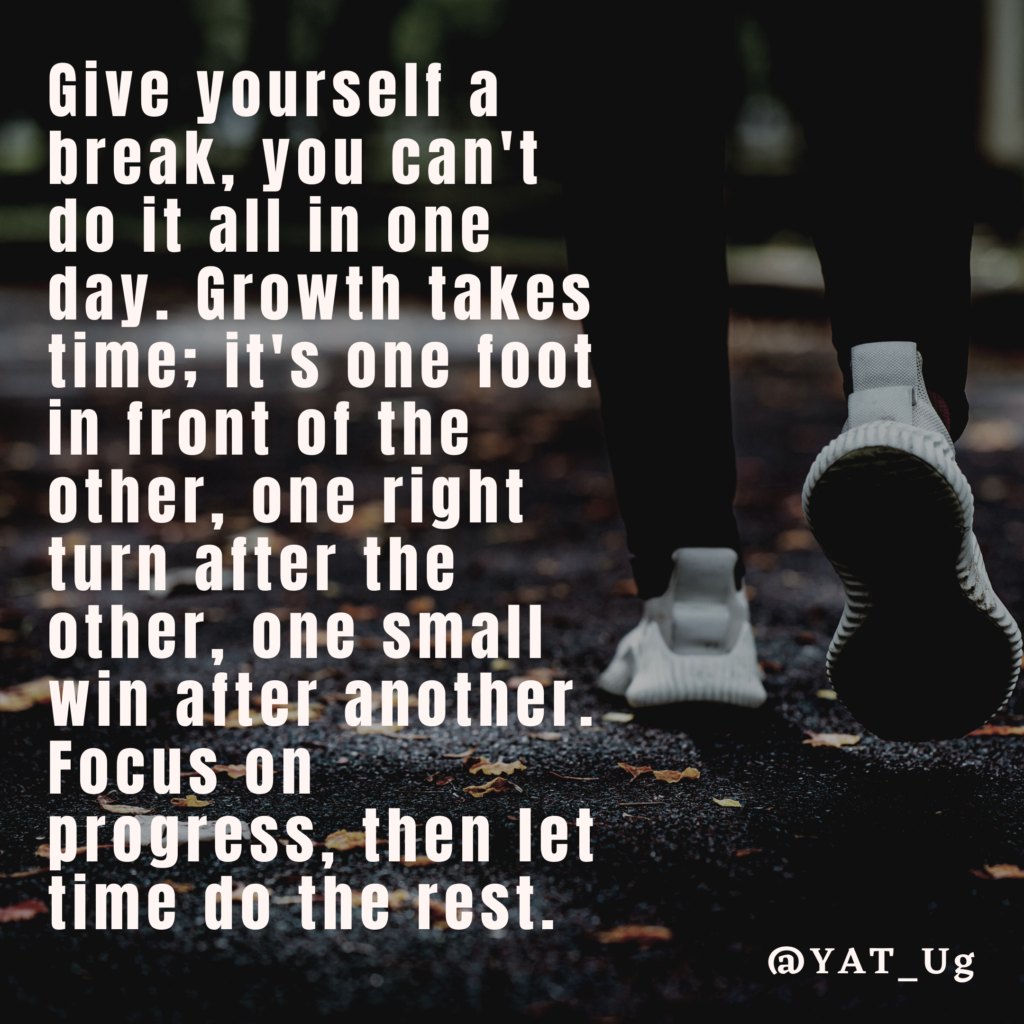What are we if we aren’t growing, if we aren’t trying new things, pushing the boundaries of our abilities and limitations, discovering parts of ourselves we never knew existed? All this is only possible by consistently trying new things, stepping out of the comfort zone and into domains we aren’t familiar with.
There are always risks that come with trying and learning new things: chances of failure are high since it’s something you’re not familiar with. And what’s even scarier is that people will see you fail so it might be easier not to start in the first place. There’s the fear of what other people will think of you: maybe they’ll think you’re depressed when they see you start sharing personal content online, or that you failed in your career when you start that tailoring business. That fear is experienced by someone who is usually a loner stepping out and trying to be social or someone who is overweight stepping out and starting to exercise.
That’s why, when it comes to learning new things, it’s important to have the right mindset, principles, and values that guide your decisions, give you courage when making those big leaps, and give you resilience when things aren’t going as planned. Here are 6 principles of how to approach learning something new.

1. Be brave enough to suck at something new:
Often we desire to try something new. Perhaps it’s learning a new skill, perhaps it’s exploring a part of yourself you’ve never explored before. You might have been a loner and would now like to open up a bit more and make more friends. You might be someone who has always had a passion for music but had never explored it. What holds you back is the fear of sucking when you start, but it’s inevitable. When you start to go out a bit more and start making friends, you will suck: your social skills might be off-putting, you might come off as weird. When you start pursuing art-making music, writing, painting- your first works won’t be great, people might think you’re just forcing life. New experiences are scary that way; what if you fail, everyone will be watching.
That’s why it takes bravery to try out something new. Because the first few times will probably suck, you might fail, most likely embarrass yourself. But the adventure is worth the risk. Learning new things, meeting new people, exploring untapped talents.

2. Humility:
A lot of times it’s our pride that gets in our way when we want to learn something new. As a young adult, you might feel like you’re expected to know everything. Especially if it’s small things like; talking to strangers or networking and being social. It feels like everyone else knows and expects you to know things. That’s why it’s sometimes difficult to ask for help, especially from your peers who seem like they’re ahead. It takes humility to be a learner, humble yourself, admit you don’t know, and ask for help.
3. You don’t have to figure it all out before you start:
One mistake people make is that they think they have to figure everything out before they start. They think they have to figure out the A-Z before they can start working on something. Before you know it, planning turns into overthinking, which turns into procrastination. Some moments just call for action; you just have to start moving, you can figure out the rest along the way. Start with that one half-baked idea and watch it take shape. You can make changes along the way but the most important thing is to start moving.

4. Small consistent steps are better than giant leaps:
Another reason you fail to learn new things is that you assume the learning process should be one giant leap. Like trying to build a reading habit; you want to start reading a book a week for starters, or trying to be more social by walking on the streets and striking conversations with random strangers. That’s not just unrealistic, it has high chances of causing burnout (Though for some people it might work). Instead, focus on small consistent steps like; reading a page a day or making small talk with people you already know. Focus more on building habits rather than aiming at goals. Here’s an interesting article about focusing on habits rather than goals (link).

5. Focus on what you can control:
Truth be told, not all new ventures will succeed there’s often a high chance for failure, that’s just life. That’s what deters some people, the high probability of failure. You can’t always control the success or failure bit, but what you can control is the fact that you’re always giving your best effort at all times.
6. Make peace with failure:
This might sound like the first point, however, in this case, it’s acknowledging the possibility that what you’re doing might totally fail but you still do it anyway. A lot of what holds people back is that ‘what if I fail analysis paralysis’ Getting comfortable with failure as a possibility takes the pressure off. For some, it’s impossible to succeed without first failing. An aspiring entrepreneur will likely have to fail a couple of times before he/she gets it right. However, every failure is a lesson learned, experience gained even contacts and connections gained which increases the chances of the next venture succeeding. Give it a try, but if it doesn’t work out, be ready to get up, dust yourself and try again, or call it quits and try something new.
A failed venture is not always a total loss. You get to meet new people and make meaningful relationships, you get to participate in something bigger than yourself: service, charity. You get to push past your limitations and discover what you’re really capable of. And that’s the adventure in exploring the unknown and trying out new things.
Conclusion: Those are the 6 principles of how to approach learning something new. They take away two of the biggest obstacles to trying out new things: the fear of failing and the fear of being seen struggle at the start. Making peace with those two obstacles gives you courage and resilience when trying new things.


A good read for any starter 👌